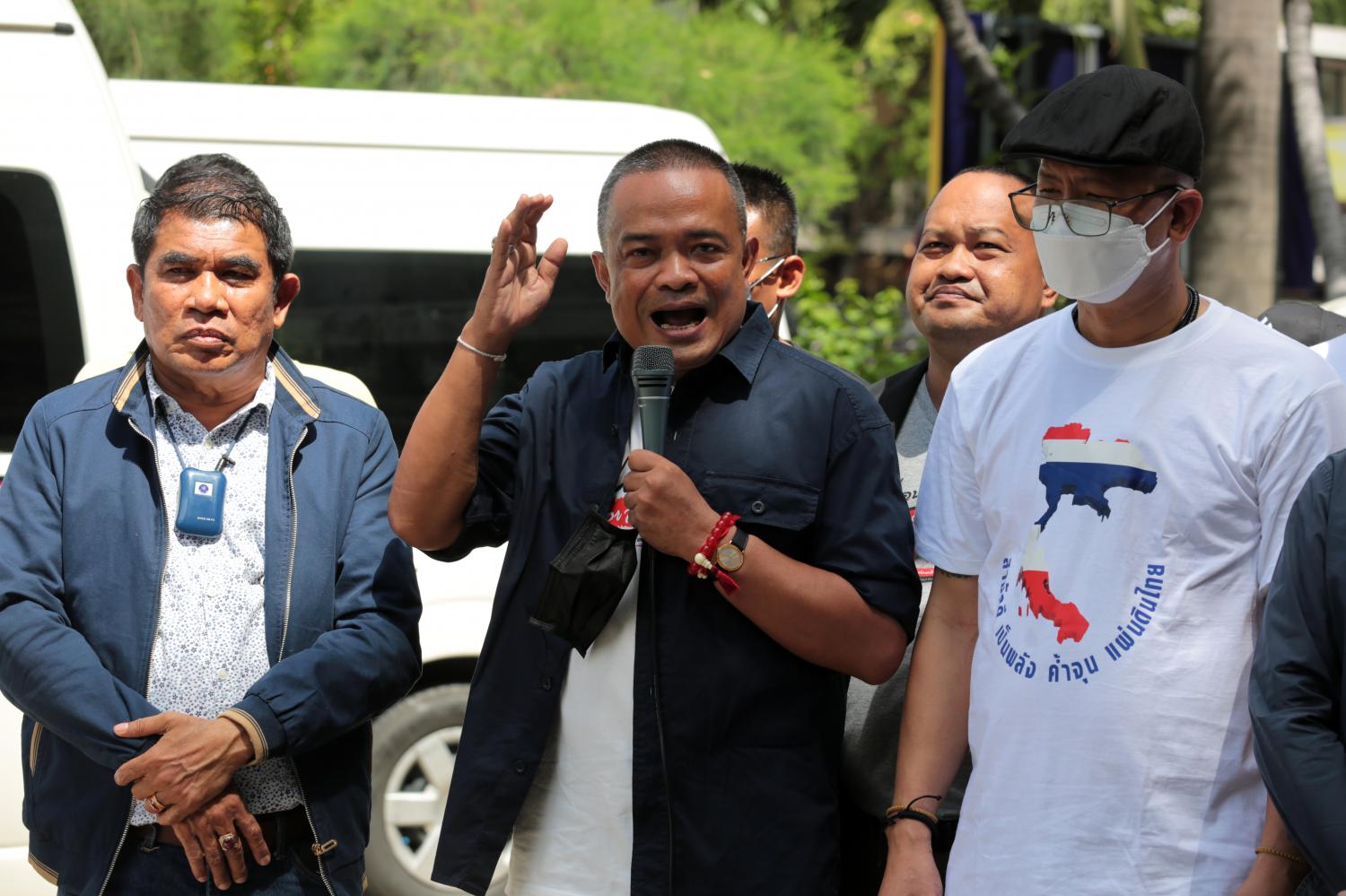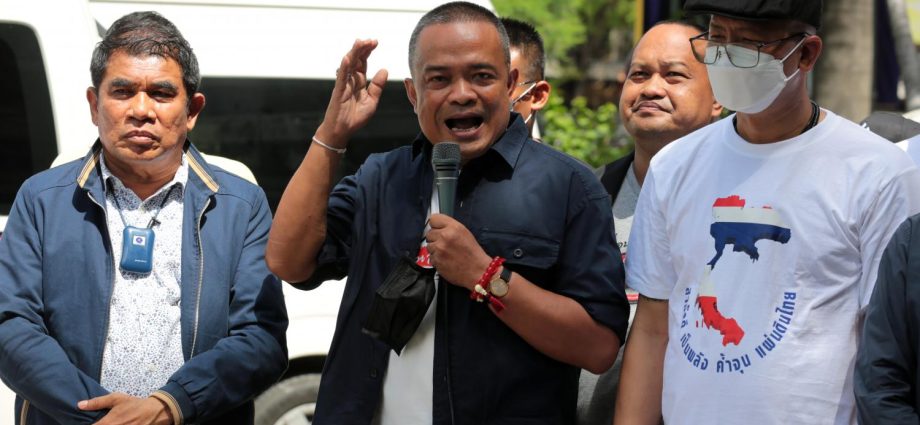Former red shirt says nation’s colour-coded conflict remains an issue

The endorsement of Pheu Thai candidate Srettha Thavisin as prime minister, which coincided with deposed prime minister Thaksin Shinawatra’s return to face jail time, has nothing to do with political struggles involving the red-shirt and yellow-shirt groups, former red-shirt leader Jatuporn Prompan has said.
Mr Jatuporn said the prime ministerial vote on Tuesday was a political deal in which outgoing prime minister Prayut Chan-o-cha returned the power he seized from Pheu Thai in 2014 back to the party.
The former chairman of the red-shirt United Front for Democracy against Dictatorship (UDD) backed his claim by pointing out that most senators who voted for Mr Srettha have close connections to Gen Prayut.
He disagreed with observations that the latest political development signals that the conflict between the two opposing camps, which has been around for almost two decades, will disappear.
Some analysts see Thaksin’s homecoming and the political alliance between Pheu Thai and those in the so-called conservative camp as a sign of them burying the hatchet.
“For the conflict to end, the process must be straightforward, acknowledged, and accepted by all sides,” he said.
“No personal gains are involved. The conflict between the regime and Pheu Thai is possibly resolved, but a new conflict is also created as some people are unhappy with Pheu Thai.”
Pheu Thai should expect resistance from Move Forward Party (MFP) supporters as well as its own supporters who vouched for the party because of its pro-democracy principles, said Mr Jatuporn.
On social media, MFP voters reacted to Mr Srettha’s endorsement as prime minister with #NotMyPM to show their displeasure towards Pheu Thai, which abandoned the MFP to ally with Bhumjaithai, the United Thai Nation (UTN) Party and the Palang Pracharath Party (PPRP) and several smaller parties.
Mr Jatuporn also predicted the coalition government headed by Mr Srettha would be short-lived due to its zero credibility.
He said the allegations involving irregular land deals against Mr Srettha by whistle-blower Chuvit Kamolvisit would return to haunt him.
“Pheu Thai went back on its word and conspired with those who seized power. This is more than a crisis of faith. How can the government succeed with such a drawback?” he said.
Suthep doubts
Meanwhile, Suthep Thaugsuban, former People’s Democratic Reform Committee (PDRC) leader, cautioned against using the idea of “putting an end to the conflict” when asked about the end of colour-coded divisiveness.
He explained that people can have differences of opinion and live in harmony as long as they respect the law.
He said there is no reason for people to oppose Thaksin because he agreed to enter the justice process and face the consequences.
Mr Suthep said Thaksin made the right call by returning to face a jail term, and his decision to return after almost two decades indicated that Thaksin came to the realisation that he must accept the justice system.
Asked if he would forgive Thaksin, who announced he forgave everyone, the veteran politician said he did not need to be forgiven, nor did Thaksin need it from him.
“He doesn’t have to forgive me, and neither do I. When he accepted the justice system, it’s done. There’s nothing to be forgiven,” he said.
He said people hold no personal grudges against Thaksin, but if the ex-prime minister or his political party abuses power, people can rise up to oppose what is not right.
“And there is the line that should never be crossed. If his people want to rewrite a new charter in a way that affects the monarchy institution, we won’t allow it,” he said.
Asked if the Pheu Thai Party and the MFP could be engaged in a new conflict over the lese majeste law issue, Mr Suthep pointed out that some figures in the “Thaksin regime” are believed to be anti-monarchy.
Pheu Thai has pledged not to amend the lese majeste law while the MFP remains adamant on the controversial policy, which saw its prime minister candidate Pita Limjaroenrat rejected.
Mr Suthep said he will be keeping an eye on the charter amendment campaign, which is one of the Pheu Thai Party’s core policies.
“We welcome any reform proposals by younger generations to help improve the country, but if they want to do away with everything and transform the country, I think it’s unacceptable,” he said.

